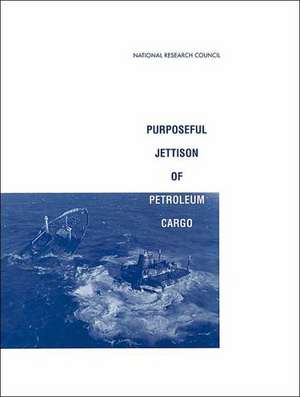Purposeful Jettison of Petroleum Cargo
Autor National Research Council, Natl Research Coun, Committee on Marine Salvage Issuesen Limba Engleză Paperback – 31 ian 1994
Preț: 325.46 lei
Nou
Puncte Express: 488
Preț estimativ în valută:
62.28€ • 67.86$ • 52.48£
62.28€ • 67.86$ • 52.48£
Cartea se retipărește
Doresc să fiu notificat când acest titlu va fi disponibil:
Se trimite...
Preluare comenzi: 021 569.72.76
Specificații
ISBN-13: 9780309050814
ISBN-10: 0309050812
Pagini: 216
Dimensiuni: 216 x 279 x 14 mm
Greutate: 0.62 kg
Editura: National Academies Press
ISBN-10: 0309050812
Pagini: 216
Dimensiuni: 216 x 279 x 14 mm
Greutate: 0.62 kg
Editura: National Academies Press
Textul de pe ultima copertă
Discharging cargo to save a ship in distress is recognized in international protocols, but U.S. statutes - specifically, the Oil Pollution Act of 1990 - introduced a strict new liability standard for damage from oil spills and established criminal sanctions for spillers. Now, potential legal repercussions have made salvors, administrators, and ship operators leary of considering limited discharge of petroleum or other cargo as a potential option for saving a ship and thereby avoiding a much larger spill. As part of its deliberations on this issue, the Committee on Marine Salvage Issues of the National Research Council convened a symposium to assess the jettison issue and its implications for shipping and marine environmental protection; the need to clarify U.S. law; and advances in oil spill contingency planning, environmental data acquisition, and spill trajectory forecasting. This new book from the National Research Council presents the committee's report and recommendations along with proceedings of the symposium. It includes the historical context of jettison, environmental requirements, new spill modeling technology, the current legal status of jettison under federal and state laws and international treaties, a panel discussion of an accident scenario that focused on jettison as an alternative for preventing a catastrophic spill, and a Regional Response Team decision-making exercise.
